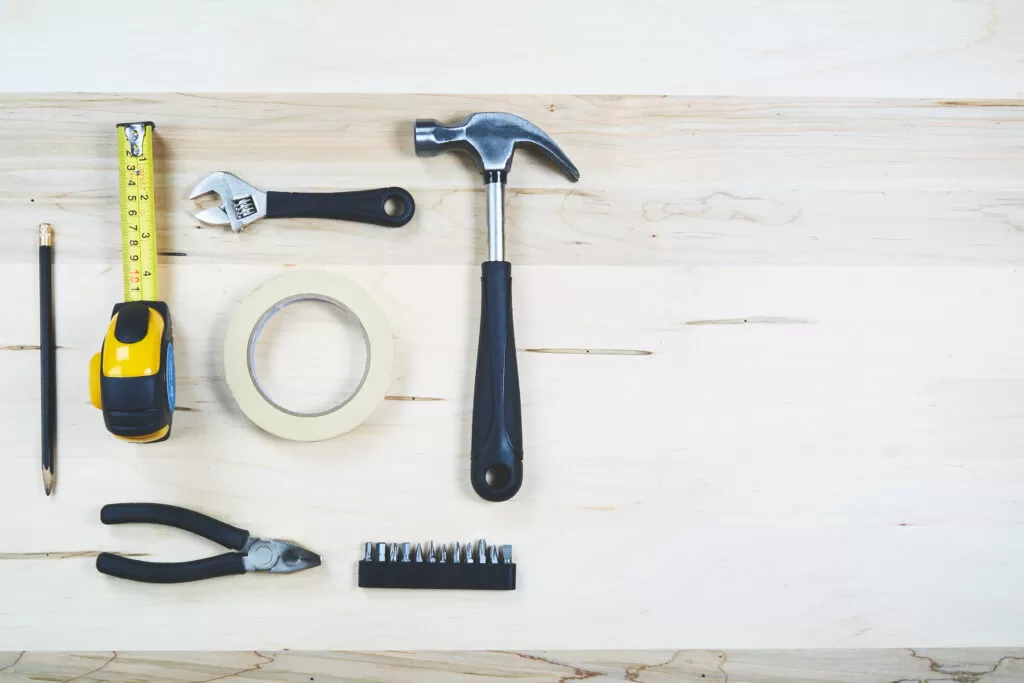How To Find Your First Home

Finding your first home can be a challenging process. Budget constraints, limited housing, competition, location, timing, and the right fit are just some of the problems that new buyers need to navigate.
Some of the common challenges involve finding a home that fits within your budget and dealing with competition from other buyers in a seller’s market. Additionally, finding a home in a desirable location can be difficult, and the timing of your search can also be a challenge if you need to move quickly.
Be Patient
The first thing to come before anything else – it may take some time and effort to find a home that meets all of your needs – so if you can – don’t rush it. It’s important to be patient and persistent in your search, and your favourite listing really isn’t likely to be on the market during your first week of searching.
Decide The Location of Your First Home
You have to narrow your search somehow. In the UK around 1 million homes are sold each year (totalling £260bn in sales). The market is huge and constantly moving, and the only way you can focus your efforts to get your first home is to get your search area down.
The good news is this is always a fun part of the house search! You get to spend time exploring new locations and deciding what feels right.
Some people find it useful to draw up their “must haves” for their new home location. A few examples include:
- Good transport links
- Great coffee houses
- Busy bars
- Essential shops
- Gyms and recreation spots
- Good schools
- Low crime rate
Of course the big Must Haves are going to be what actually needs to be inside your home! Whether you want a spare bedroom, loft conversion, study or garden, these are all useful things to note down at the start.
Brand New First Home or Room For Improvement

It can be tempting to buy a house all done up with the top specs, but this can turn out costing much more.
Equally, there’s some good reasons to buy a home with the intention of improving it:
To increase the value of the home
It’s well known that buying a home that needs some work with the intention of making renovations or improvements can increase the value of your property. If you are able to do some of the building work yourself, this can be very lucrative as a home owner.
It can also work out cheaper for you. Buying a home needing improvement is cheaper than buying a refurbished home. This means a lower purchase price and lower mortgage to pay back.
To learn new skills
Some people may also be motivated to buy a home that needs work as a way to learn new skills or to take on a challenging DIY project. Some DIY work is easier to do than others – like painting and decorating.
Only if you have time
Although it can make financial sense to improve a home, everyone has busy lives. So if you don’t think you’ll have time or the spare cash for a home improvement it might be best to buy a home with the work already done.
Sign up to the key apps
It’s no secret that most home sales are now advertised online when they’re available. The main property apps showing listings are:
For all of these apps you can create an account and receive updates on new properties to hit the market in your area:
In Zoopla navigate to your account (top right hand corner) and find the Searches and alerts icon. From there you can set up searches for specific postcodes and set how often you would like notifications.
Make Friends With The Agents
As soon as you show an interest in one of the property adverts above, be aware that the estate agent marketing the property will be keen to speak to you. Even if you don’t end up making an offer on the original property, they will still be reaching out regularly to see if you want to look at any more.
Clingy estate agents can be annoying, especially when they follow up with you a lot. But it does pay to keep them on your side and answer their calls.
Off Market Deals
Some agents even reach out to certain buyers to let them know about homes before they get advertised on the market. This is a real win and can mean you get a good deal on your first home.
Make a shortlist
Once you have your list of “non-negotiables” and “nice to haves” it’s time to start viewing properties!
If the area is far away from where you’re currently living you may have to do the viewings at the weekend. It all depends on how badly you want to see certain homes. For the really special property that can’t wait for the weekend it’s worth getting over as soon as possible to make an offer before others do.
If you are doing a weekend viewing it’s worth keeping to the following tips:
- Don’t overbook yourself for viewings across town – no matter how tempting it is.
Leave space in your itinerary for at least 45 mins per appointment. That’s 20 minutes to view the property 10 minutes for follow up questions with the agent and 15 minutes to get to the next place/allow for any delays on the agent side. - Make sure you take photos and videos of every house viewing. Take your time, and get everything in your video – that includes the walls, the floors and the ceilings.
Note: it’s best if your phone has a wide angle lens so you can get the full room.
Aim for 3 home visits a day MAX
This is so important it deserves it’s own separate point. Don’t make the mistake of booking in 6 visits during a 3 hour period. The fact is even if you’re able to attend all 6 within the day (a big ask) you’ll find yourself rushing around from A to B and won’t be able to absorb the feeling of each place.
Write Down Your Thoughts Quickly
It’s so important to document how you feel about a property straight after visiting.
You might find the location or neighbourhood to be different in person. The walk to the station or school might be further than you thought. It’s very hard to know about noise in the neighbourhood until you’re over there.
Inside the home you might not like the condition you find it in. Photos on the advert are always ‘flattering’ and miss out any key negatives.
Make sure you look out for any key red flags on your home visit, including our top 7 warnings.
Use Zoopla for recent house prices
Zoopla have a useful tool for checking house prices in your target area. Just put in your postcode in the search box to discover recent house purchases.
Check Your Affordability
For most people, buying a house means taking out a mortgage, and it’s important you know what mortgage products are available to you and if you can afford the ongoing repayments. It’s best to get independent financial advice from a mortgage broker to determine the best options for your personal situation.
Making An Offer On Your First Home
Once you’re happy with the property and comfortable with what you can afford, contact the estate agent. You will need to communicate your offer through them, which will be passed onto the seller to consider.
Specify the price
The most important part of making an offer is specifying the price that you are willing to pay for the property. It is a good idea to have a clear idea of your budget before making an offer.
Include any conditions
You may want to include conditions in your offer, such as making an offer for the white goods. Make sure these are clear and upfront at the time. A surprising number of house purchases face problems further along for relatively small things like items in the house.
Be Prepared To Negotiate
It’s very common to have the seller wanting to negotiate your offer, so be prepared for this situation. Often if the estate agent comes back on behalf of the seller with a counter offer, you won’t have much time to consider the position.
Consider Taking Out Insurance
Most people need to spend money on surveys, solicitors, mortgage brokers and bank fees to get a house purchase moving. It’s worth mentioning that not every home sale ends up going through – in fact 4 out of 10 home sales fall through.
It might be worth taking out something called home buyer protection insurance. This will cover some of your costs in certain situations and may help to protect your budget. Read our home buyer protection insurance review here.
